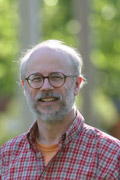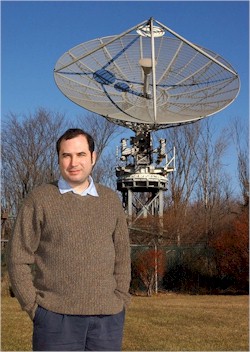Who is Anti-Science?
From Bruce Chapman and discovery.org.
“There is a long record of conflict and persecution in the history of science, as in any area of endeavor. Scientists are given to the same failings as other human beings: greed, status anxiety, envy, and fear. To believe the pious statements by professional organizations about the enlightened way “science works” is comparable to accepting the civics textbook renderings of “how a law is made.” There is a way, all right, that science is supposed to work (and laws supposedly are made), and then there is reality.
One can be grateful that there are so many cases where science does proceed along the ideal path, but there is no excuse for trying to fool the public into thinking that great injustices and bad judgments don’t occur, too.
 I
asked Steve Martyn, a summer intern from Seattle Pacific who was at
Discovery Institute this summer to research some historic examples. He
came up with a number; in fact, he could have found scores.
I
asked Steve Martyn, a summer intern from Seattle Pacific who was at
Discovery Institute this summer to research some historic examples. He
came up with a number; in fact, he could have found scores.
Take, for example, the shameful cases of the “Vanguards of Germ Theory” (see the paper and footnotes here), including Dr. Ignaz Semmelweiss, the Hungarian working to solve the problem of puerperal fever (childbirth fever) in Vienna in the early 1840s. Before the work of Louis Pasteur, Semmelweiss correctly identified the solution if not the exact diagnosis: thorough cleanliness on the part of doctors delivering babies.
Semmelweiss showed that requiring doctors to wash up between operations and deliveries could sharply reduce mothers’ deaths in childbirth. Nonetheless, his strictures offended the medical establishment and he was driven from his hospital. It is a long, gloomy story of harassment that ended in a mental breakdown by Semmelweiss.
Also persecuted was another vanguard in combating the disease, Joseph Lister. Eventually, the scientific community did recognize its errors and modern sanitation arrived in Western hospitals.
 Joseph
Goldberger had a similar experience in combating pellagra in the 1920s.
Dr. Goldberger at least had federal funding; he was hired by the U.S.
Public Health Service to search for clues to the source of the disease,
especially in the South, where it was rampant. The medical
establishment once again turned its back on a maverick, denying the
relevance of Goldberger’s studies that showed pellagra to be caused by
malnutrition. Goldberger was disparaged as a Northern interloper and
effectively evicted from the region. Neither his analysis nor the cure
he proposed fit the ideology of the ruling elite, so rather than let
Goldberger proceed in his efforts, he was driven out. (He died in 1929
of cancer.) A few years later niacin deficiency was found to be the
cause of pellagra.
Joseph
Goldberger had a similar experience in combating pellagra in the 1920s.
Dr. Goldberger at least had federal funding; he was hired by the U.S.
Public Health Service to search for clues to the source of the disease,
especially in the South, where it was rampant. The medical
establishment once again turned its back on a maverick, denying the
relevance of Goldberger’s studies that showed pellagra to be caused by
malnutrition. Goldberger was disparaged as a Northern interloper and
effectively evicted from the region. Neither his analysis nor the cure
he proposed fit the ideology of the ruling elite, so rather than let
Goldberger proceed in his efforts, he was driven out. (He died in 1929
of cancer.) A few years later niacin deficiency was found to be the
cause of pellagra.
Perhaps there is always a predisposition to welcome research that confirms the prejudices (literally, the pre-judgments) of the dominant scientific group. When the findings of “science” back the dominant political paradigm in America there seems to be infinite interest and credulity. Think about this when you read media accounts, for instance, about how “scientists” have found a genetic explanation for why people are politically liberal rather than conservative, or how evolution explains why men are attracted to, of all things, women who are attractive. Those sorts of silliness and tautologies are exactly what the old guard wants to see.
Likewise, there is a desire in the media to scare or amaze the public as a way of gaining attention. Scientists themselves are often appalled by uses to which their studies are put, while some others of them collaborate in the distortions. Reporting one day that “scientists” announce that coffee causes cancer, say, and then a few months later that “scientists” say that coffee prevents cancer, helps sell ads for newspapers and broadcast outlets, I guess, and keeps the public agitated and worried—which is also where federal fund-seekers want them.
There are media exceptions to the wanton gullibility of the herd, thank goodness. John Stossel of ABC exposes one such fraud or over-statement after another. Robert Lee Hotz in the “Science Journal” column of The Wall Street Journal two weeks ago called attention to what you might call a “study of studies” that was conducted by Dr. John Ioannidis, an epidemiologist in Greece and at Tufts University (in Massachusetts). After examining 432 published research reports from science journals (peer reviewed reports, for those of you who entertain the superstition that peer review is some kind of academic prophylactic), Ioannidis wrote in the Journal of the American Medical Association that “There is an increasing concern that in modern research, false findings may be the majority or even the vast majority of published research claims.”
Mr. Hotz writes that an earlier essay by Dr. Ioannidis in the journal PLoS Medicine, “Why Most Published Research Findings are False” is “the most downloaded paper the journal PLoS has ever published.” Here it is, in case you are interested.
Mainstream journals have to correct errors after publication, which, of course, is just good practice and fully in the spirit of sound science. Some papers (all peer-reviewed, remember) are retracted. However, many that are shown to be flat wrong on any number of grounds simply sit out there, uncontested. Why? Might not the sloppiness have something to do with greed? The federal government is funding scientific research like never before, and, of course it is never enough. The checks on quality seem deficient, since the people who vote the funds and many who administer them are not conversant with the scientific issues.
One of the most appalling trends is the use of research money to allow some scientist to basically suck his thumb and make up interesting “theories” that explain someone else’s research based on whatever ideology is popular at the moment. That makes sense sometimes, but perhaps the approach is abused. Often it is nothing more than a way for a professor to claim another published paper, even if no one really reads it.
Couching your grant application in ways that appeal to current political correctness is often evident. At the moment, “evolution” is being funded, folks, perhaps in direct response to the challenges that scientific Darwin critics have been mounting. That is, if you want to get grant money from the National Science Foundation, find some way to link your project to demonstrating evolution, even if you not only are sucking your thumb to come up with an idea, but with your other hand you are crossing your fingers. Scientists need grants to keep university administrators happy and if they lack a worthy project, they have to invent one that at least sounds worthy. Expatiating on the obvious is not only found in English Department theses and Political Science tracts, but also in the sciences, where they waste a great deal more money.
 It
is in this environment, unfortunately, that today’s harassment and
persecution takes place. If you are Michael Behe at Lehigh University,
doubting Darwin’s theory, you not only will not get published in
science journals (Behe was once told that the journal in question only
publishes pro-Darwinian work), but you also will not be allowed to
reply to published attacks on you in scientific journals. And your
department will repeatedly denounce you, lest someone get the idea that
they are original thinkers, too.
It
is in this environment, unfortunately, that today’s harassment and
persecution takes place. If you are Michael Behe at Lehigh University,
doubting Darwin’s theory, you not only will not get published in
science journals (Behe was once told that the journal in question only
publishes pro-Darwinian work), but you also will not be allowed to
reply to published attacks on you in scientific journals. And your
department will repeatedly denounce you, lest someone get the idea that
they are original thinkers, too.
Today, the persecutors of scientific dissidents are not in the Church, but in the academy. At Baylor University, an intelligent design project that is not even directly funded by grants, has its website shut down by the university. (See article on the situation here.)
 At Iowa State University, a noted astronomer, Guillermo Gonzalez,
is denied tenure because he has published a book and several articles
supporting intelligent design in cosmology. He doesn’t teach about it,
in deference to local prejudice, but he is still judged guilty of a
thought crime. His chief accuser has been Hector Avalos, known as
Iowa’s leading atheist and who was just promoted to full Professor of
Religion.
At Iowa State University, a noted astronomer, Guillermo Gonzalez,
is denied tenure because he has published a book and several articles
supporting intelligent design in cosmology. He doesn’t teach about it,
in deference to local prejudice, but he is still judged guilty of a
thought crime. His chief accuser has been Hector Avalos, known as
Iowa’s leading atheist and who was just promoted to full Professor of
Religion.
Readers of EvolutionNews.org know of many other cases of rank discrimination and punishment of dissent. In each case, merely examining evidence that discredits a strict materialist scientific line is enough to bring down personal calumny (from Richard Dawkins and many, many more) and professional punishment.
One is tempted to say that this disgrace in the science academy—conducted without so much as a witch trial, let alone a real inquiry into the views of Darwin critics and their counterparts—is unparalleled today.
Yet, I look around, and notice the way the same sorts of people are treating dissidents on the global warming issue. Distinguished critics are routinely misrepresented as to their real views, or their evidence is just ignored in favor of ad hominem assault. The same story is found on issues of cloning and euthanasia. Needless to point out, the ideological attacks proceed in non-scientific fields, too. That was true as long ago as the 1960s, but then the sciences were mostly exempt.
To invert reality completely on its head, there is now talk that the Democrats intend to make the “Republican assault on science” a campaign issue. What assault? For example, are ever-increasing federal funds being used to back research critical of Darwin or in favor of intelligent design? Far from it. The opposite is true. You can get the feds to finance your totally unsubstantiated and fanciful theories that space aliens first brought life to earth or that life originated in an unguided way through a near infinity of other universes. But you cannot let it be known that your research may show that there is evidence of purpose and design in the universe or the NSF will reject your proposal outright and probably punish your academic institution’s application on other topics.
So, far from there being a conservative war on science, it is clear that more federal money than ever before is being deployed to fortify materialist assertions in science (not just ones with philosophical or political significance, either), and to intimidate dissidents.
Competition in the field of ideas is as much the test of liberty in science as in any other field of endeavor. It is therefore the liberal tradition that is now under assault.”
To read more click here.










October 1st, 2007 at 6:50 pm
This is, simply, a falsehood. This is not what his denial letter said, and it is not what the tenure committee or the university president said.
October 1st, 2007 at 7:39 pm
This is simply the truth. It is exactly what happened. It does not matter what his denial letter said or what the tenure committee or President said. They put their “spin” on things to cover their backsides. Everyone know Guillermo greatly deserved tenure but was persecuted for his work on ID. Even his fellow colleagues who voted on his tenure have admitted to this.
October 1st, 2007 at 8:39 pm
In other words, it doesn’t matter what the facts are, just that it’s convenient for your ideology that it be so?
You are simply making things up. GG did not bring in any grants during his time at Iowa (which is a HUGE deal for getting tenure, if not THE deal in making you an attractive candidate), his publications dropped off measurably, and he couldn’t show any real record of department leadership, such as advancing grad students to PhDs. The claims that “everyone knows” that he “deserved” tenure certainly do not include those familiar with this evidence. They commonly involve misrepresenting his publication record (for instance, counting work that he did under a different department with less lead responsibility, which is not considered relevant to tenure decisions).
If he was denied because of ID, then why won’t he release the letter detailing the reasons for his denial? If it said that ID was unacceptable, then he would be shouting it to the moon. But if, instead, it lists reasons why his scholarship didn’t measure up, no wonder he’s keeping it quiet, because revealing it would hurt his career elsewhere (which is why the letters are given to the person confidentially).
October 1st, 2007 at 10:23 pm
We all have biases. I am a Christian so in that way I am biased. You are an atheist so in that way you are biased. I have spent considerable time studying the evidence and my opinion is that Guillermo was clearly persecuted for his work on ID.
For info on Guillermo being attacked because of his work on ID see below.
http://www.evolutionnews.org/2007/06/darwinist_misrepresents_guille.html
For info on Guillermo’s outstanding record that is highly deserving of tenure see below.
http://www.evolutionnews.org/2007/05/does_leading_your_department_c.html
For information on various issues regarding Gilllermo’s persecution see below.
http://www.discovery.org/scripts/viewDB/index.php?command=view&id=4128